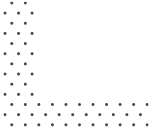What future learning opportunities have arisen from this kit?
Our school's Conservation Club benefits from my teaching experience of using this resource as I am able to use the Sea Cleaners learning activities and resources to spread the message to more students. As a school. caring for the environment is one of our 'big ideas' that we explore every few years so it will be valuable for the future.
How effective was the context of this kit in promoting statistical thinking?
In what ways did this kit impact student attitude towards environmentalism?
It provided our young children with a resource that helped them understand the importance of taking personal action for the planet as well as the tools to complete the hand-on / real-world activity of our beach clean-up.
How many bags of rubbish did your class collect?
We took 180 junior children with us to the beach and each of our 10 junior classes collected one big paper sack of rubbish. Unfortunately, or fortunately... whichever way you look at it! A couple of days beforehand, the local community had had the same idea we had and cleaned up the beach! This was great news really for all fans of the environment as it showed our learners' that many different groups in our community care about our coastal environments.
How has this kit impacted on your class culture?
Young children are passionate about wildlife! Once they realised that animals were being harmed by different types of rubbish present in our water environments, they created posters to promote the importance of caring for the environment. This year, I have a new class who are Rubbish Warriors too and are motivated to take care of our school environment by picking up rubbish without being asked.
How interested in a picking up rubbish were your students before this kit?
How interested are students in collecting rubbish after this kit?
How many hours did your class volunteer for your cleanup?
We spent a day at the beach. The beach clean up activity was 1-2 hours.

